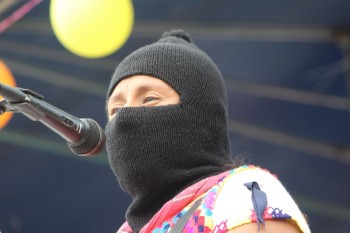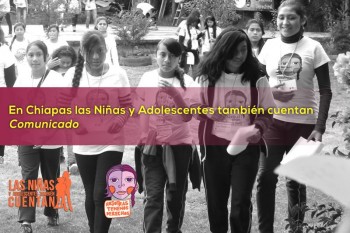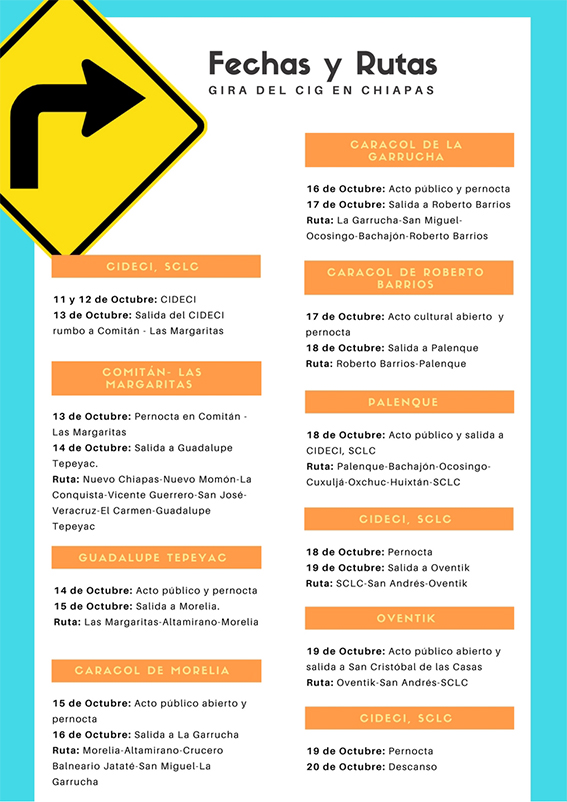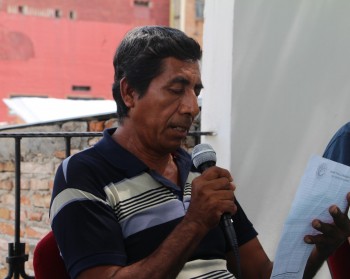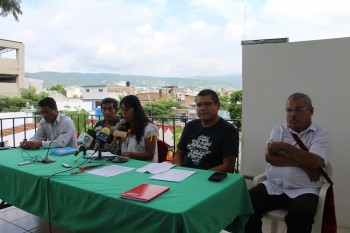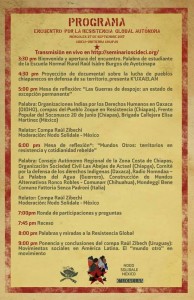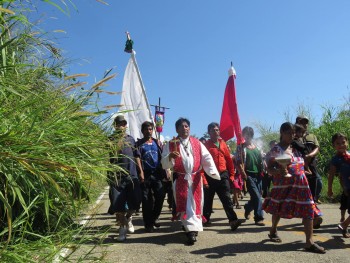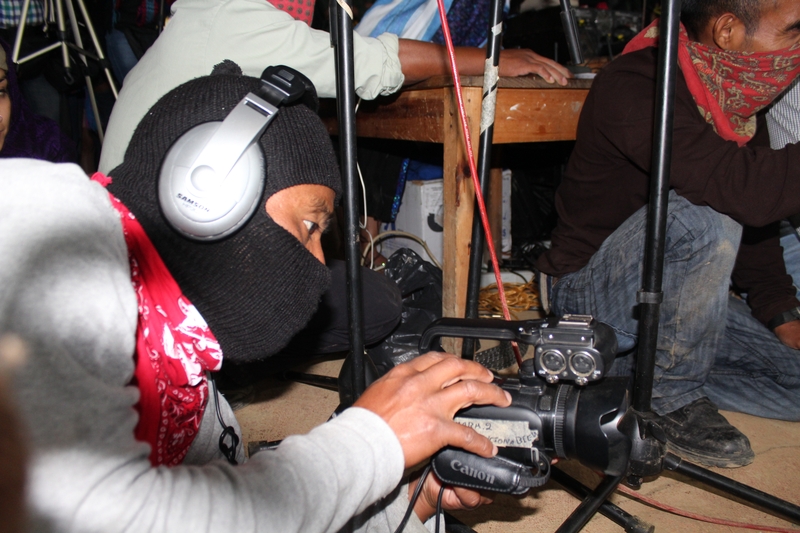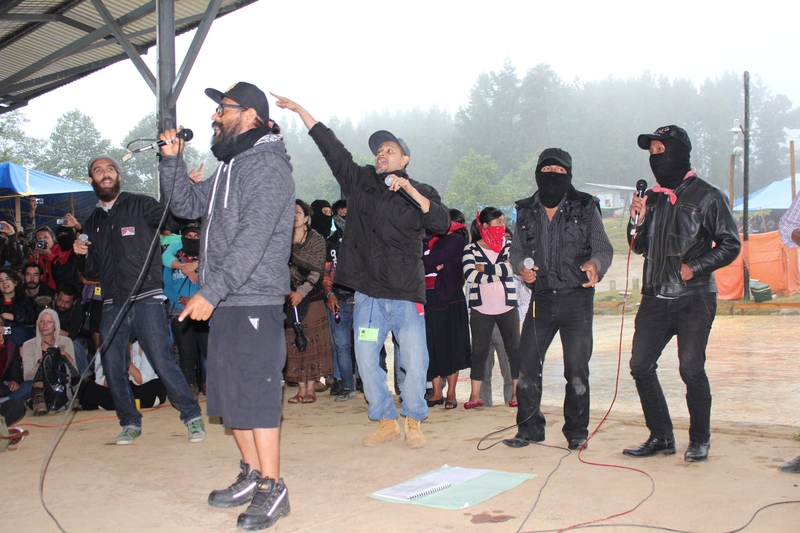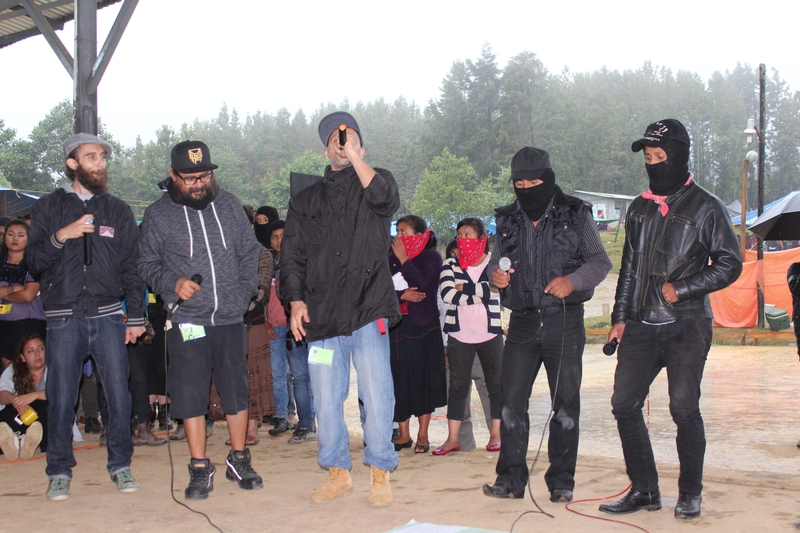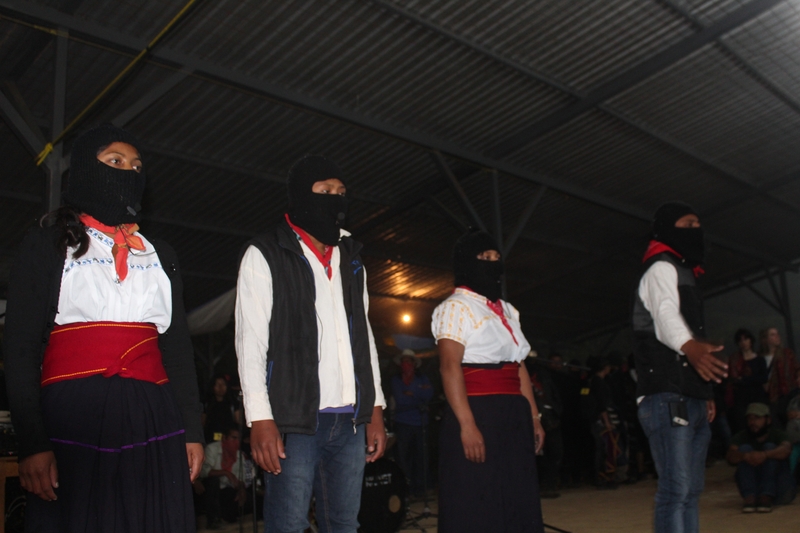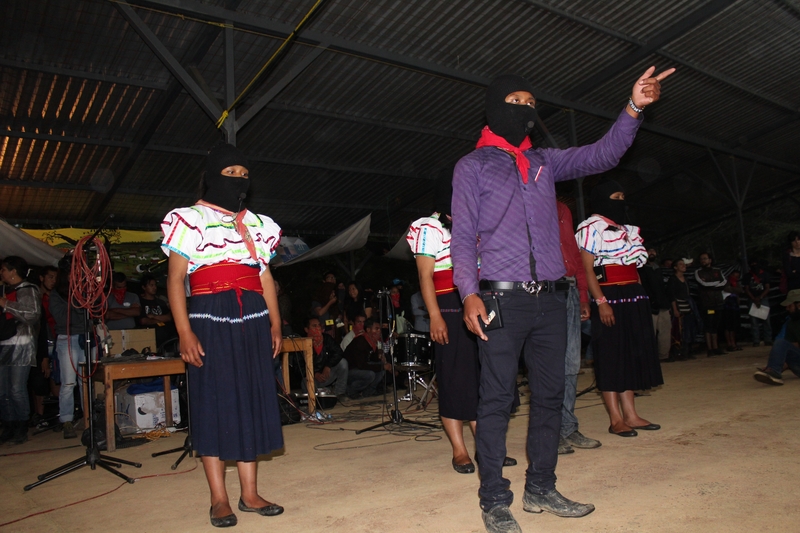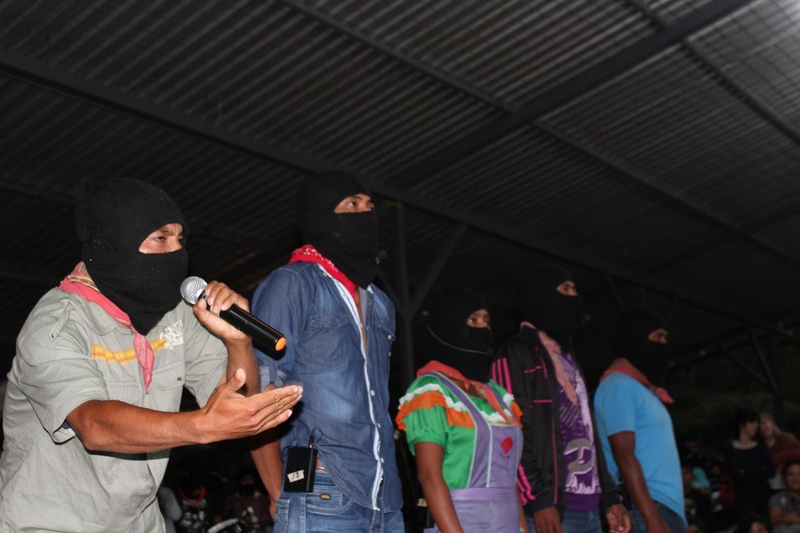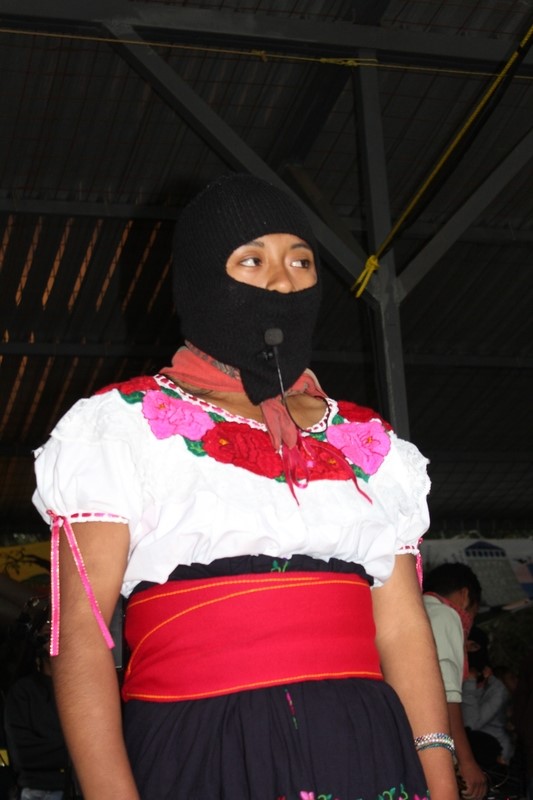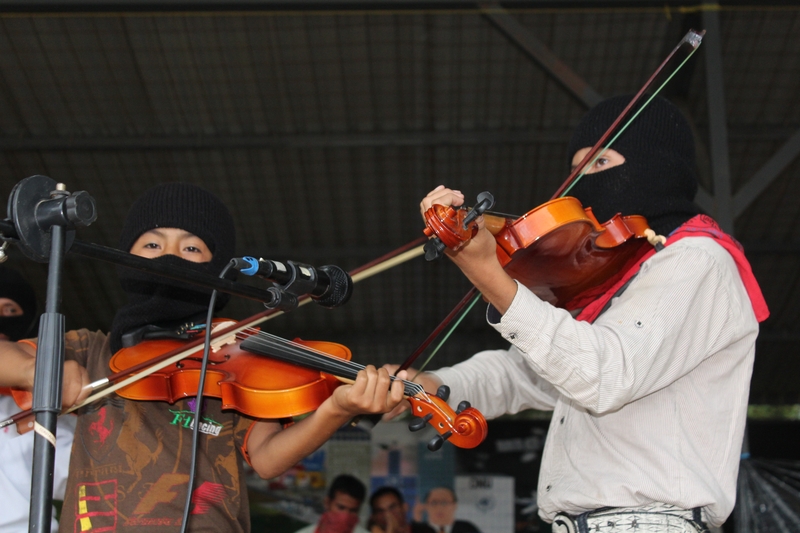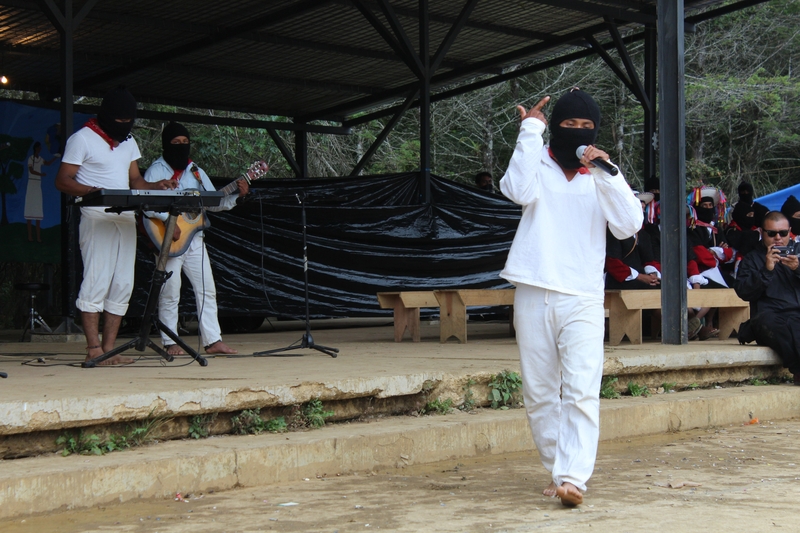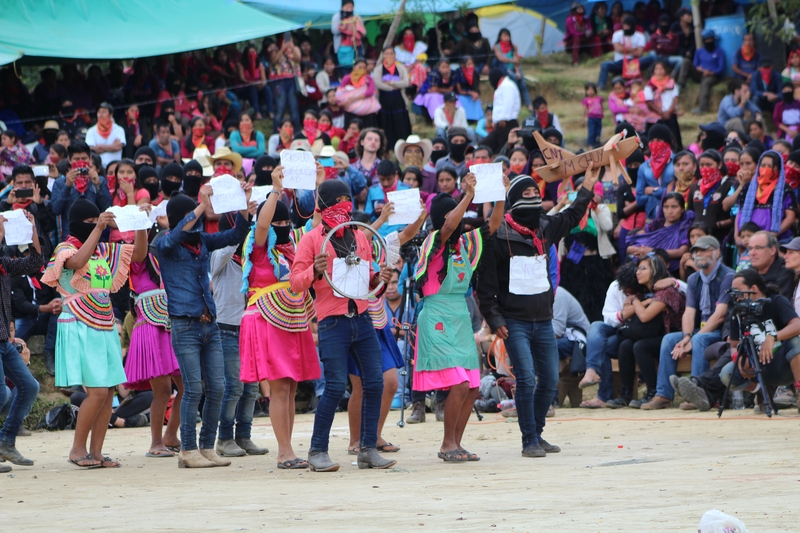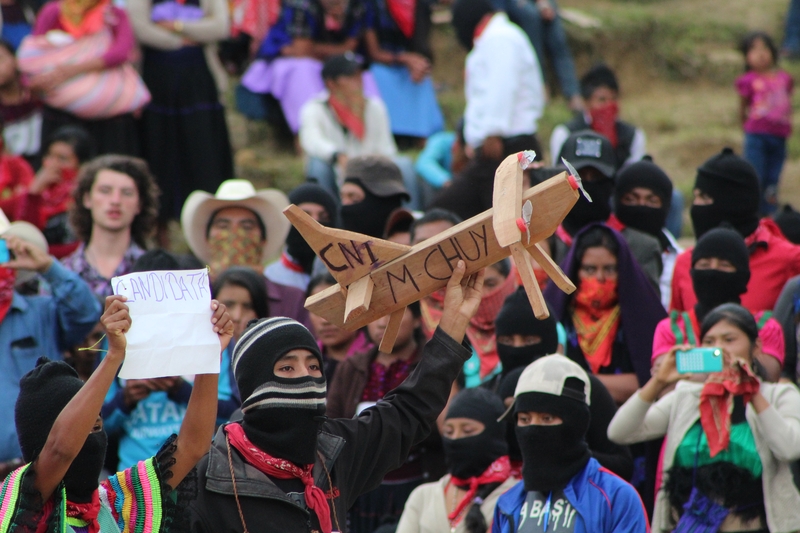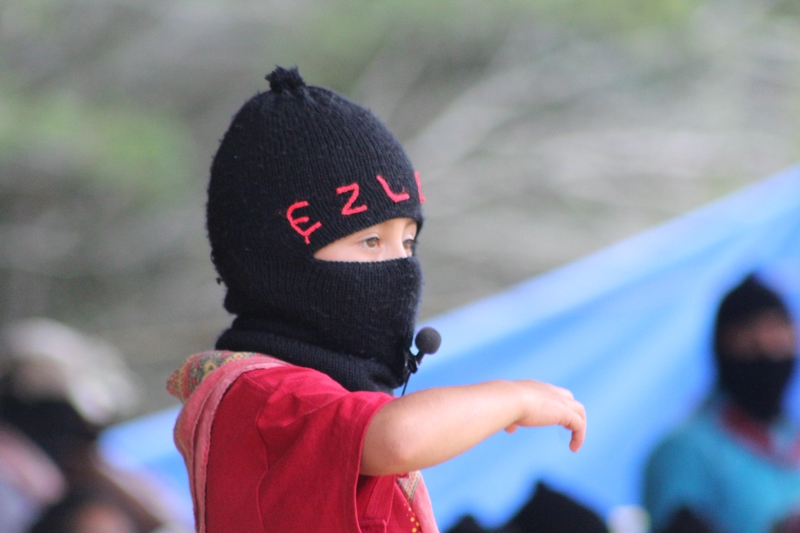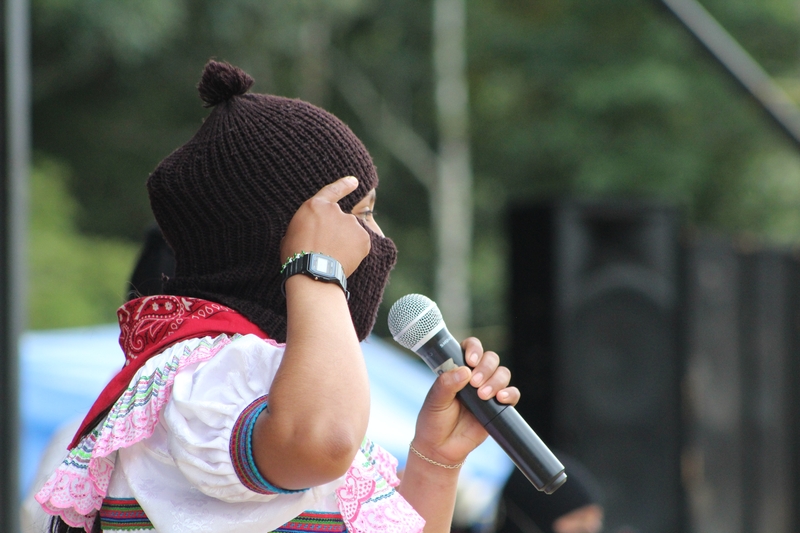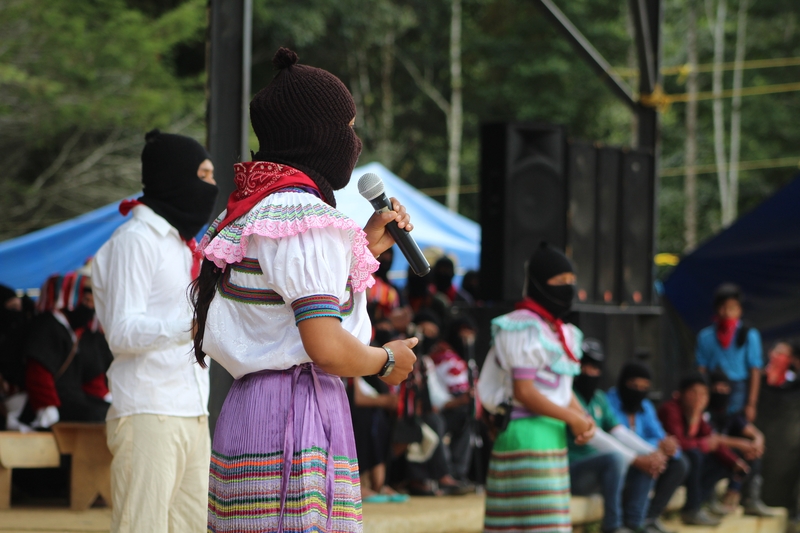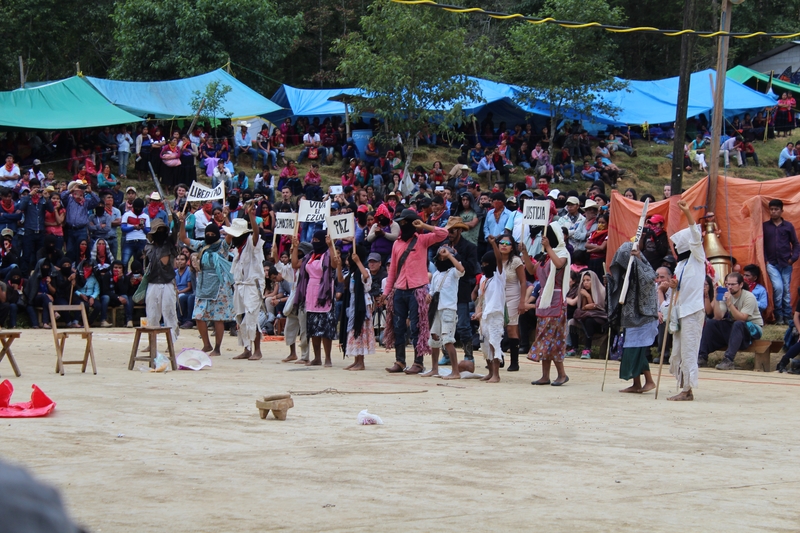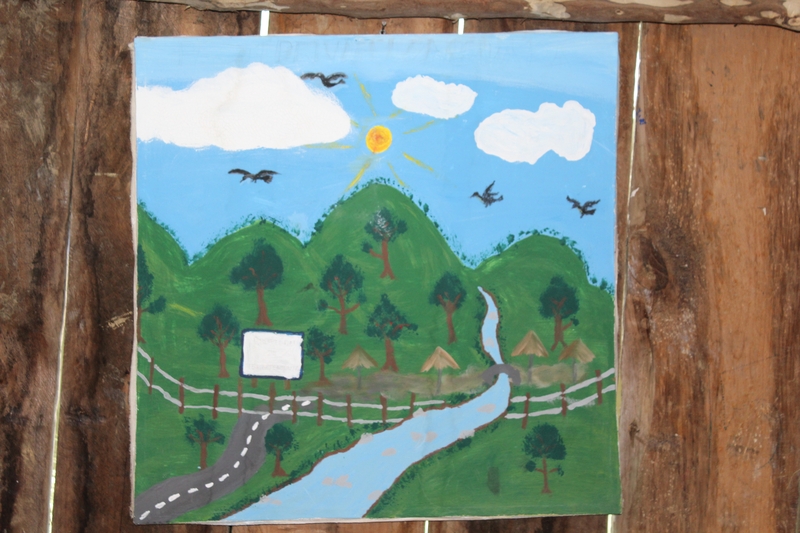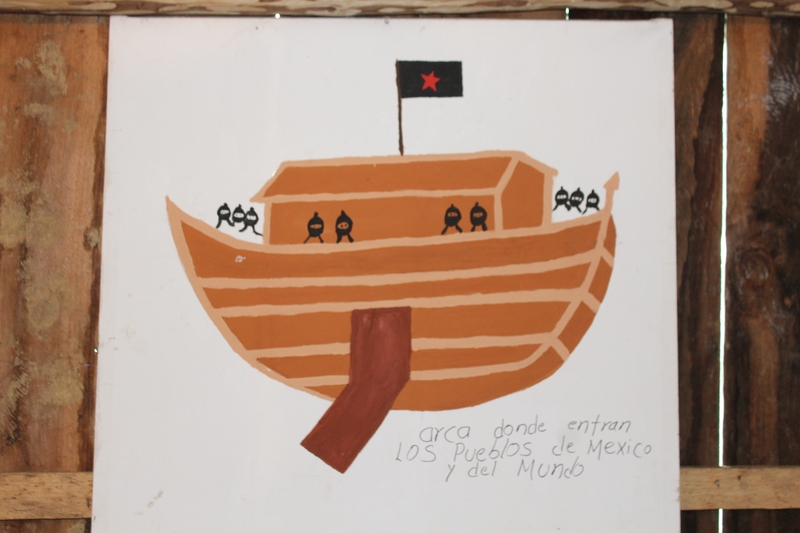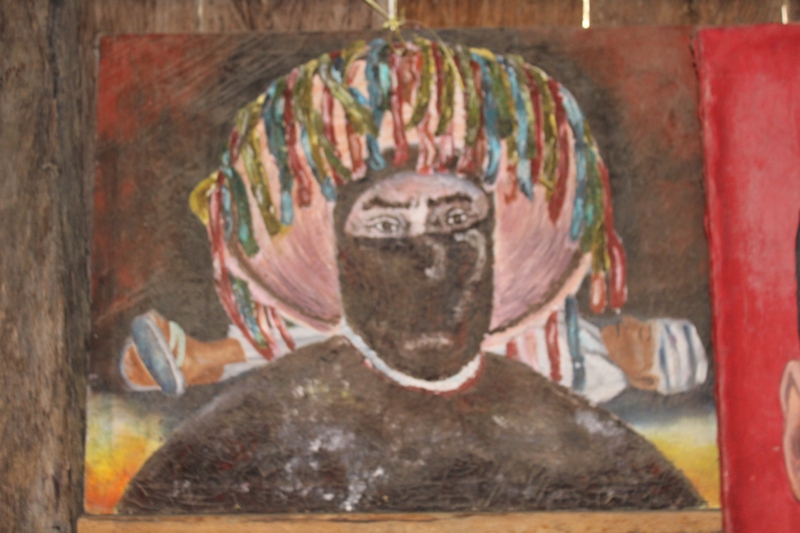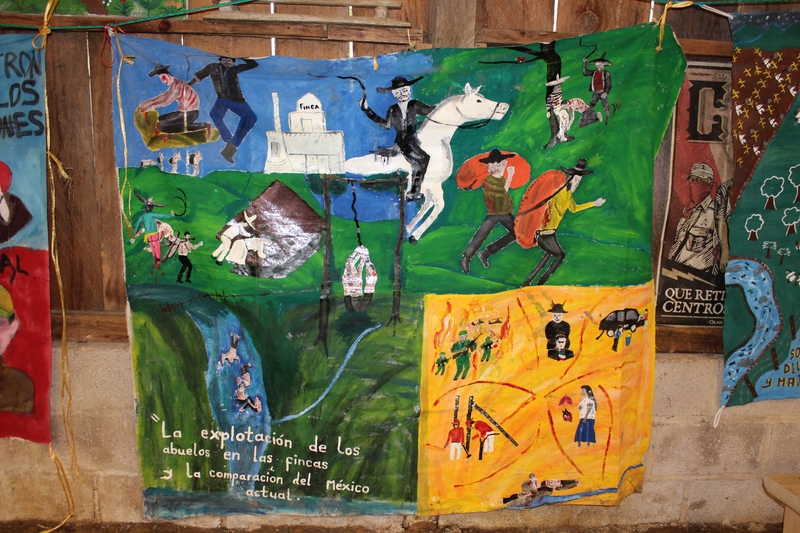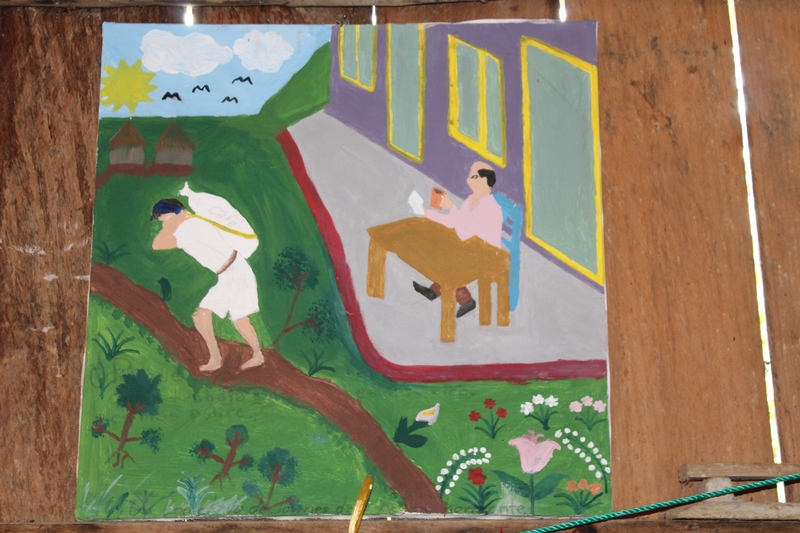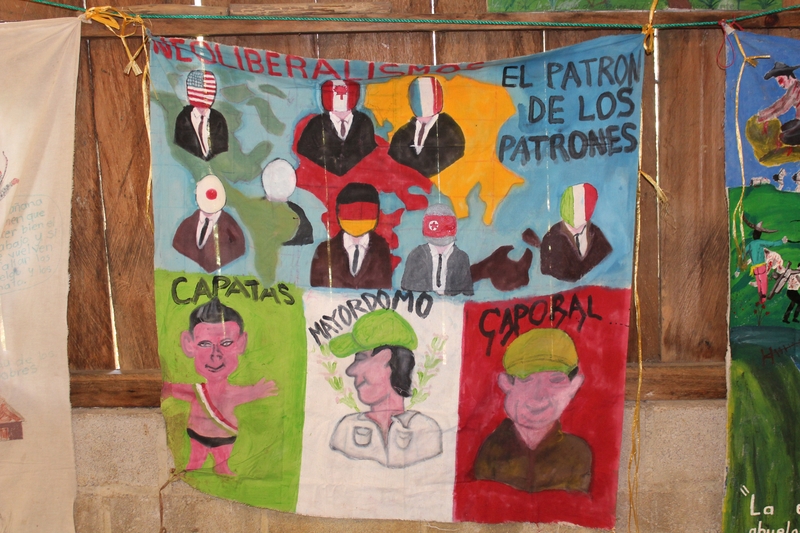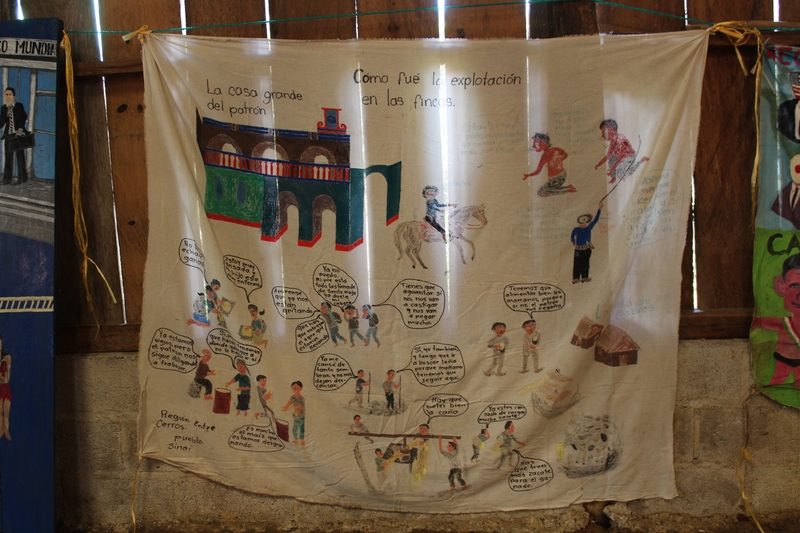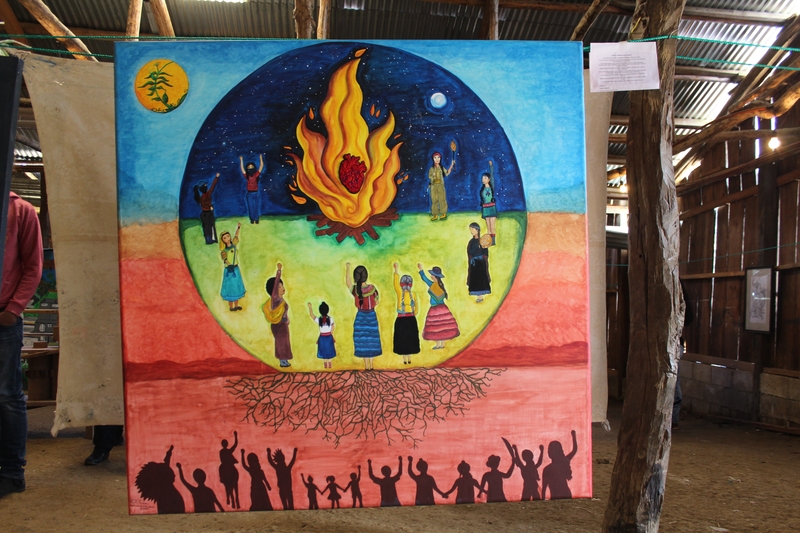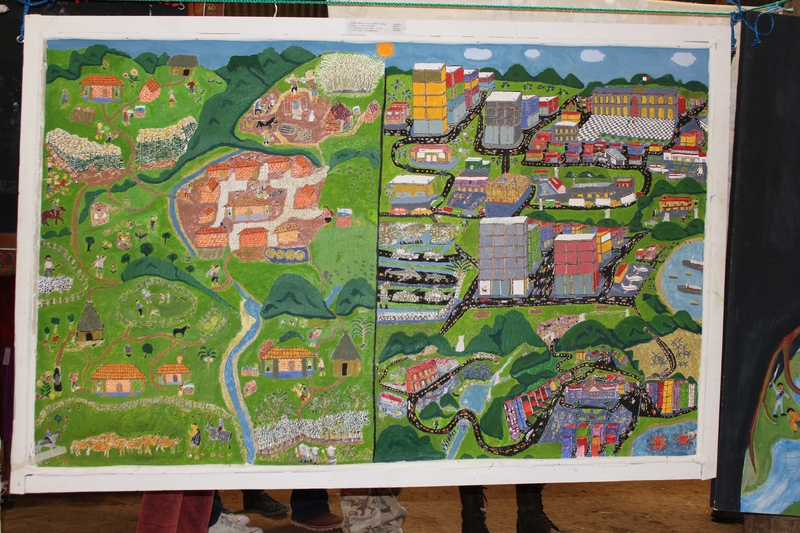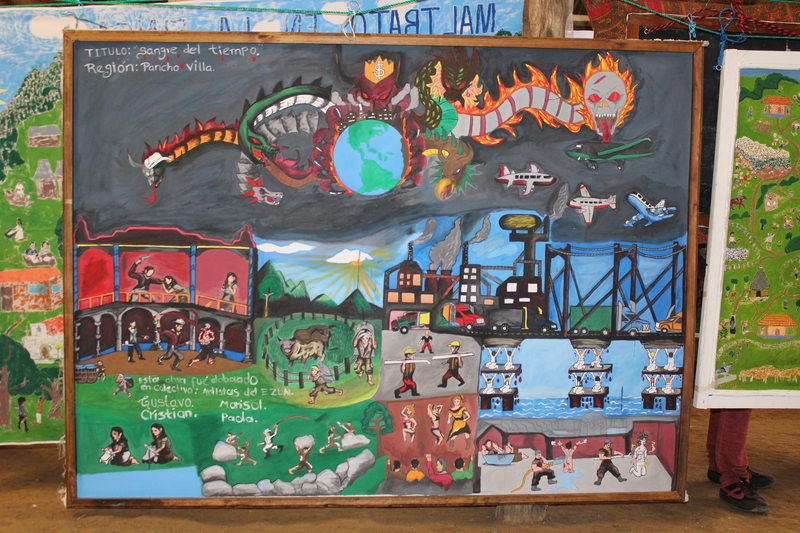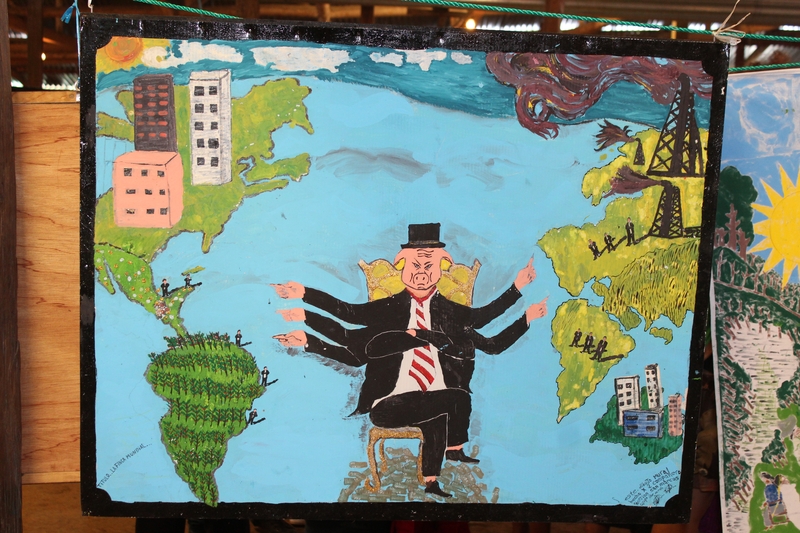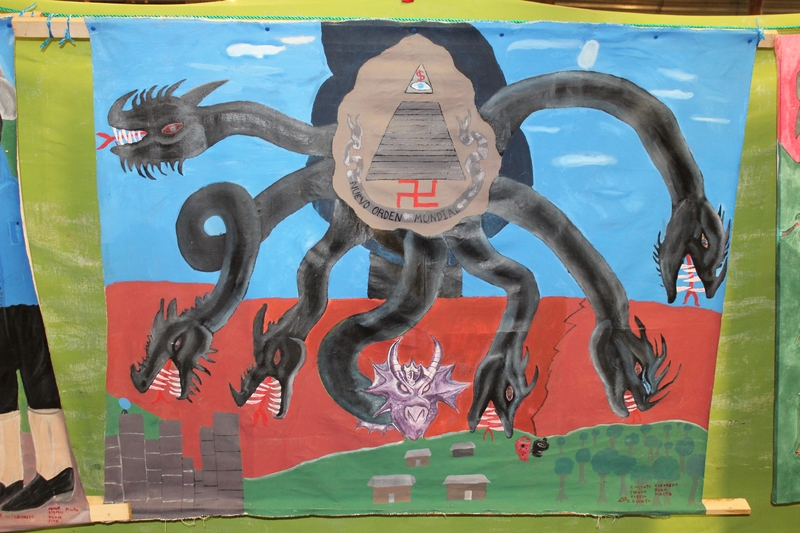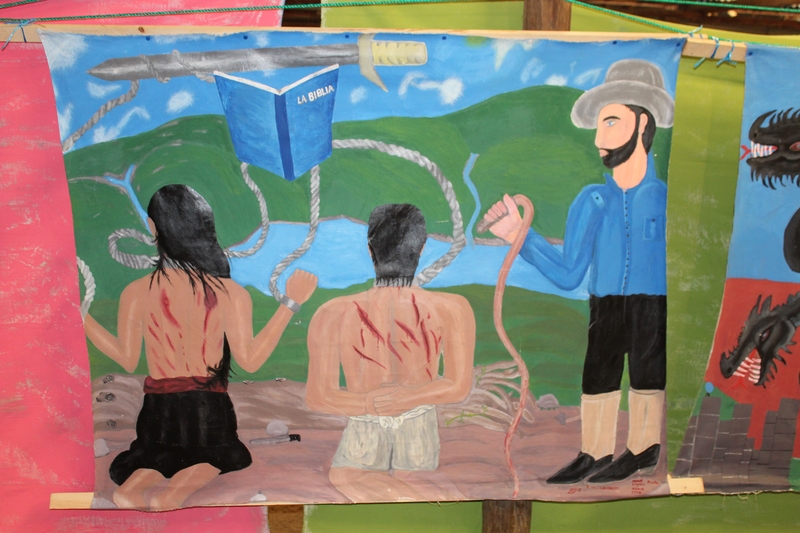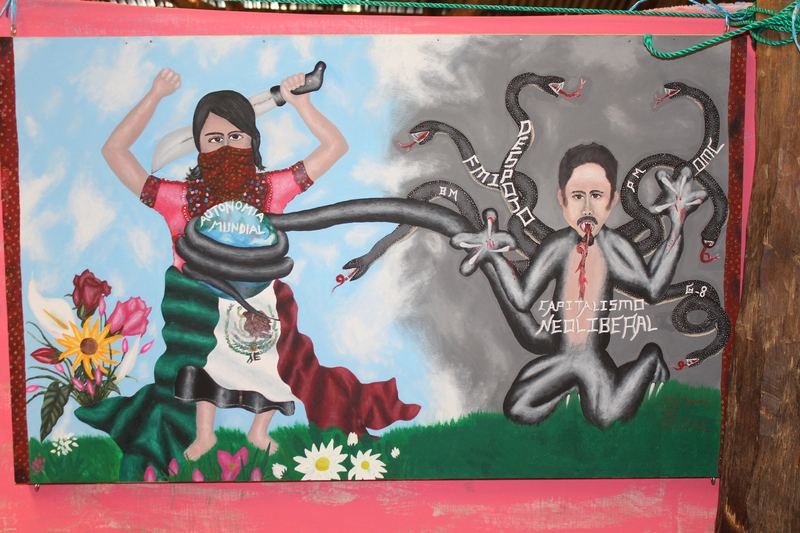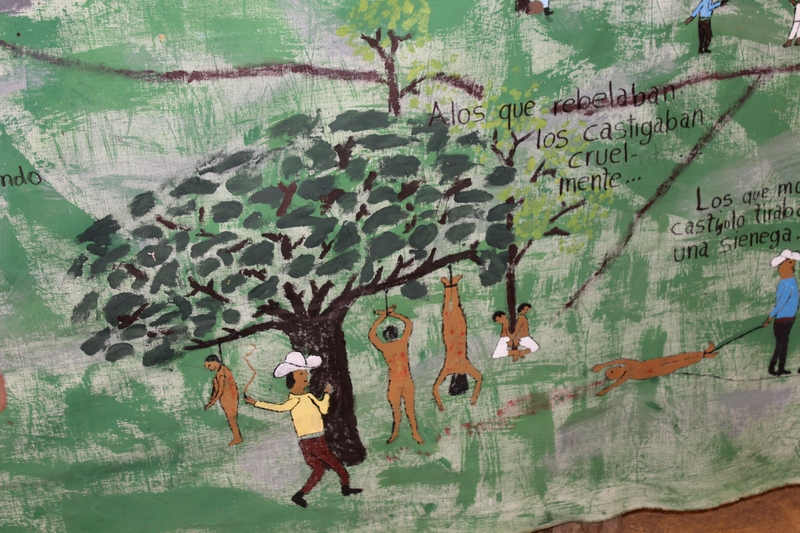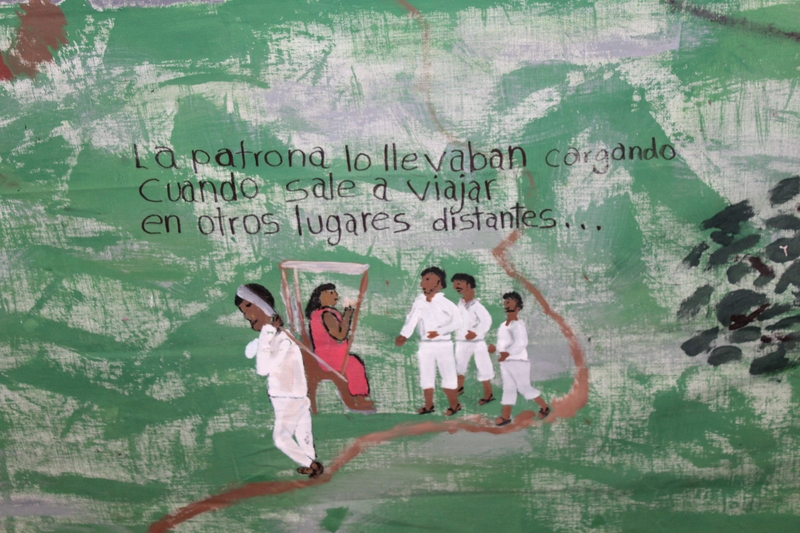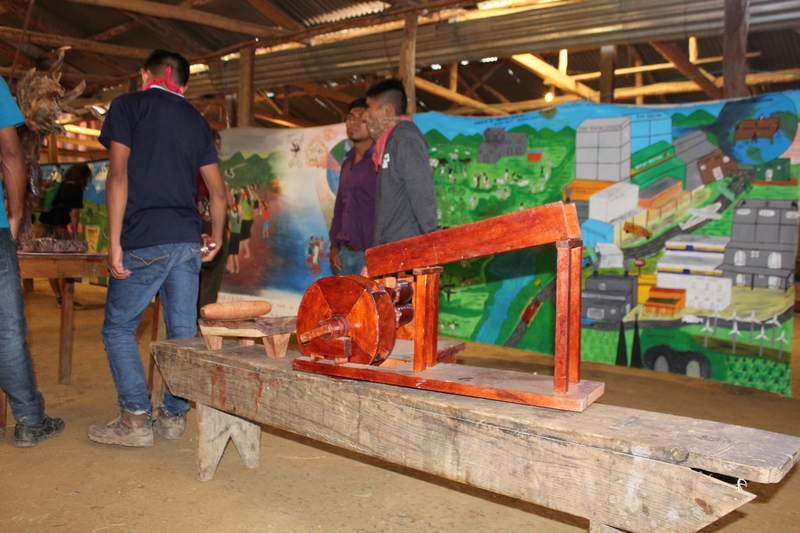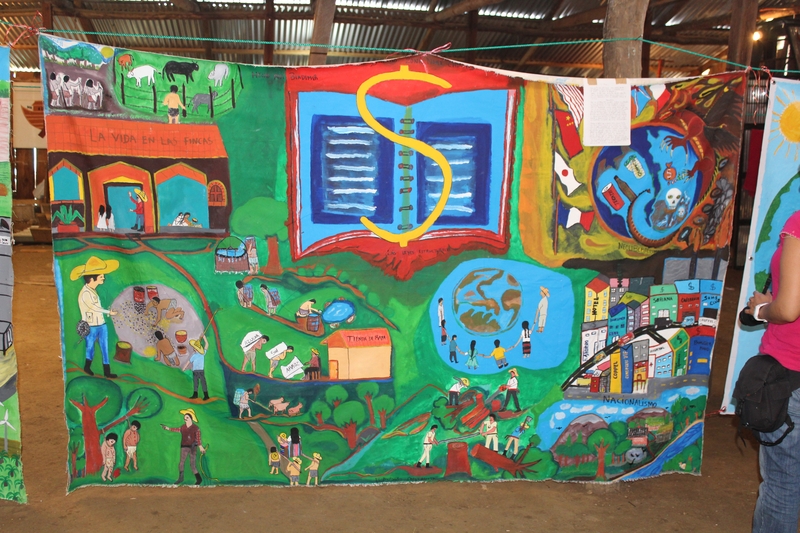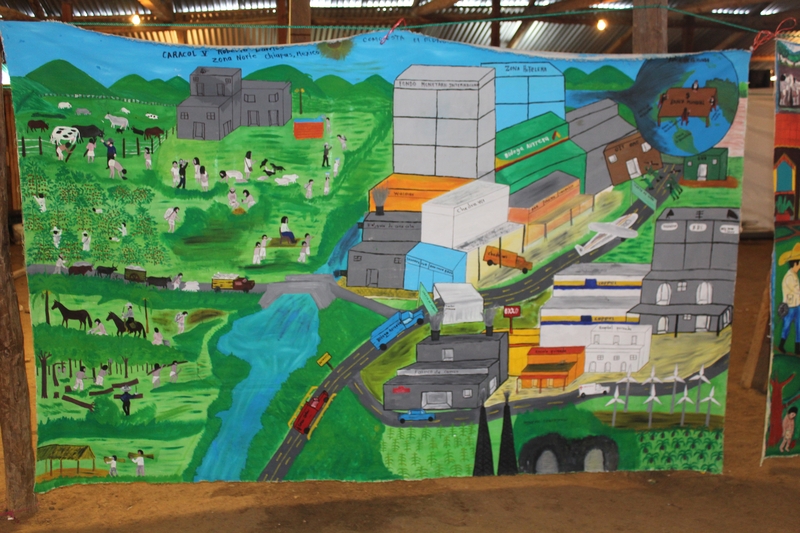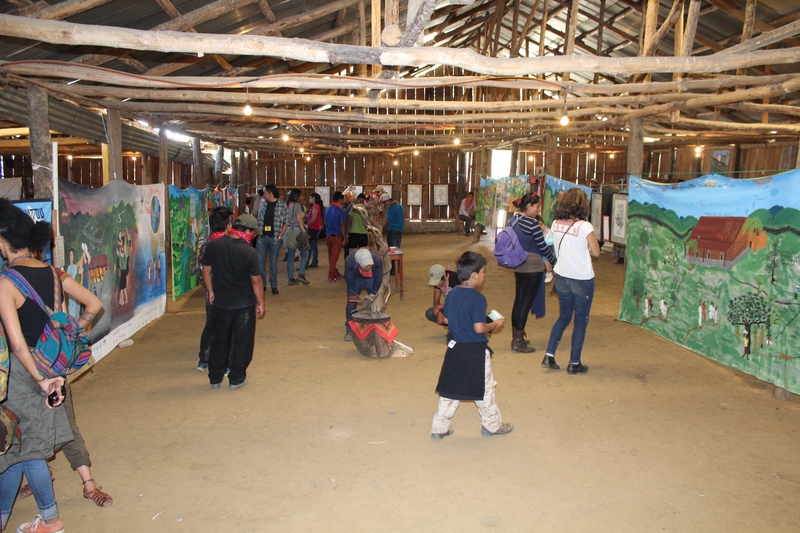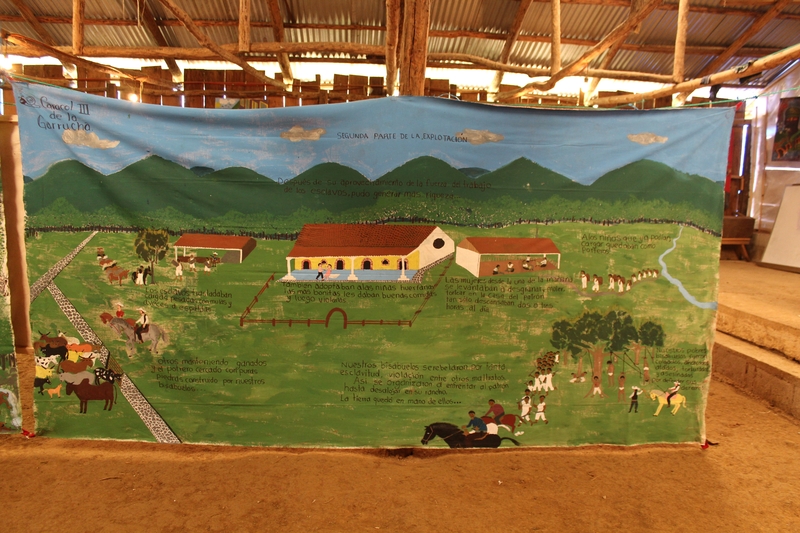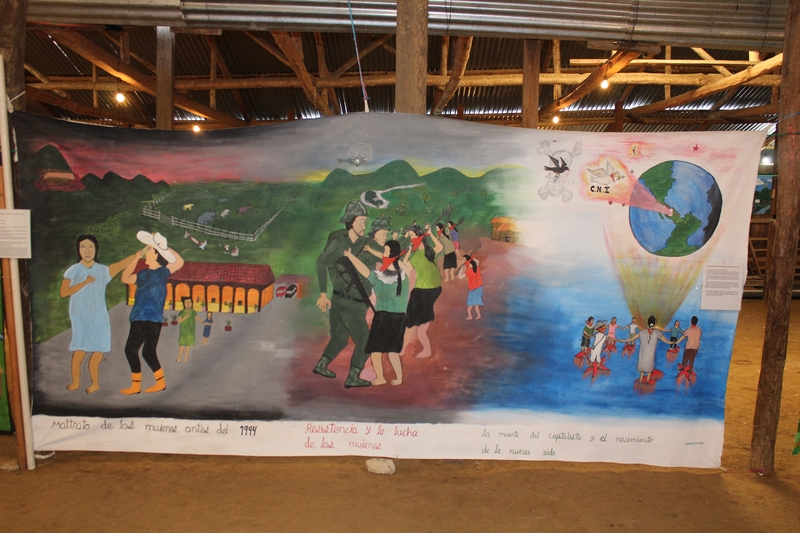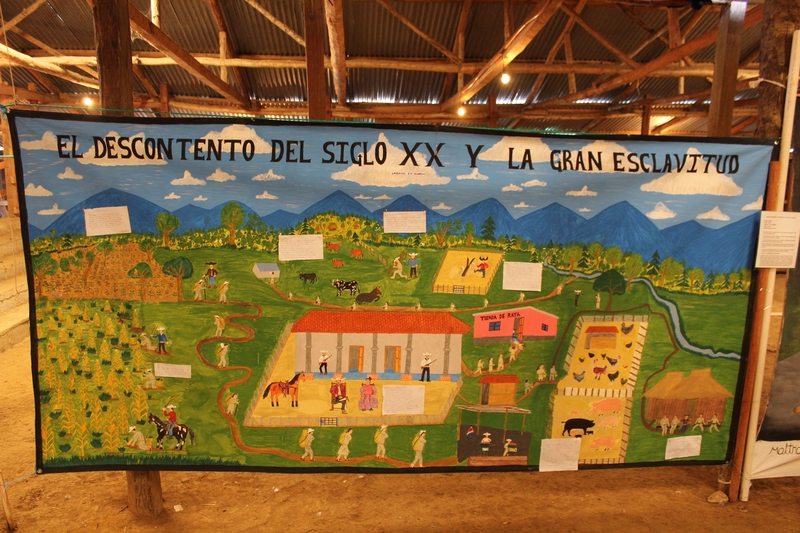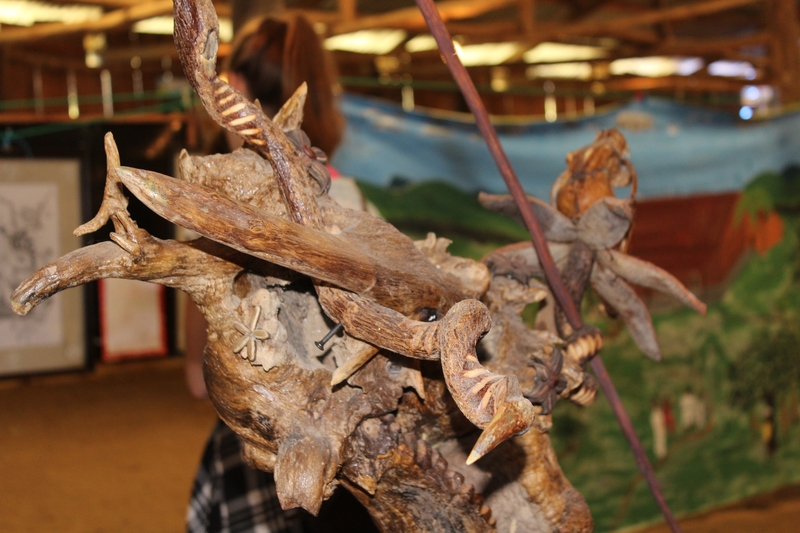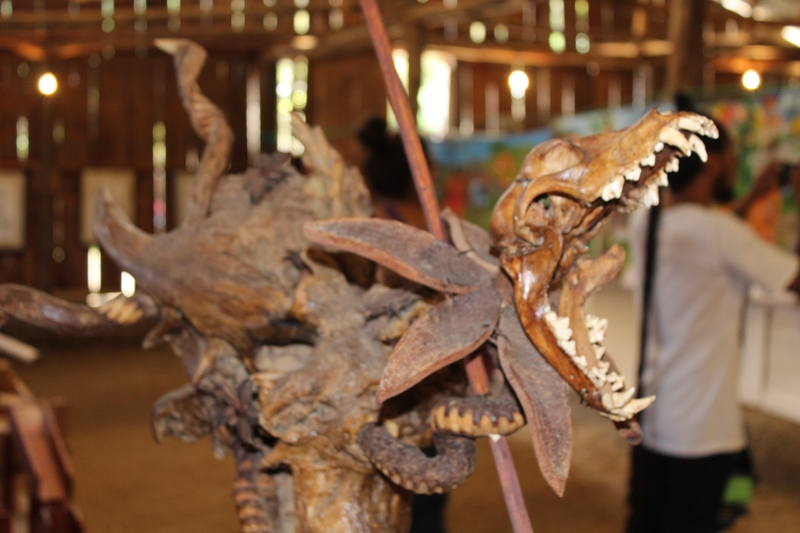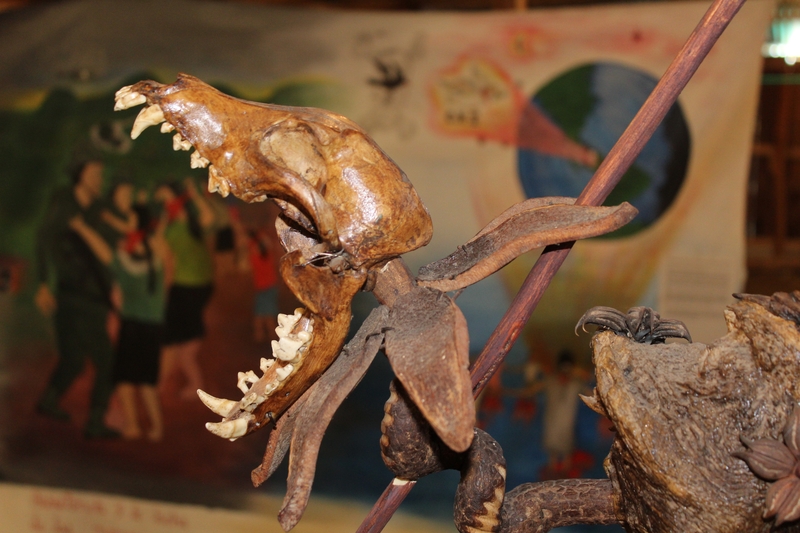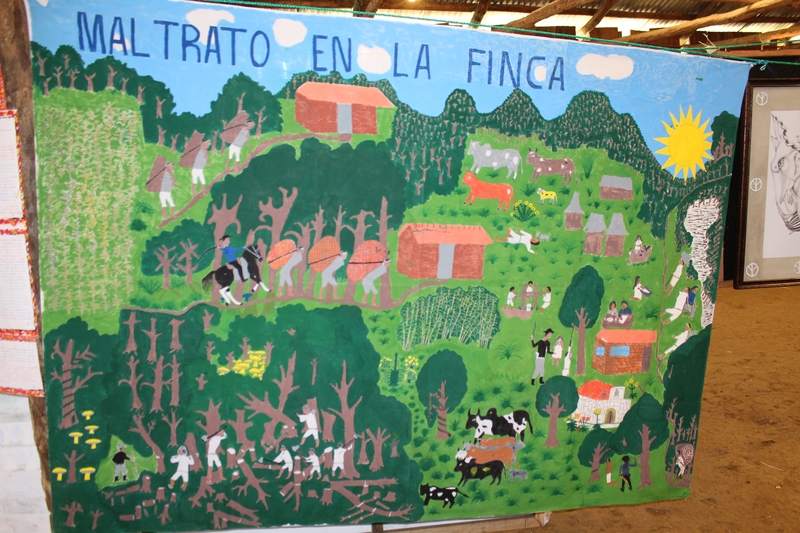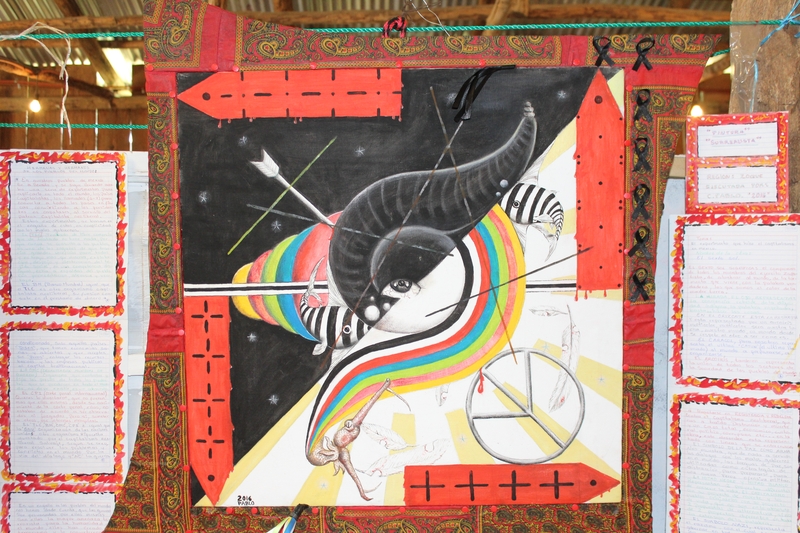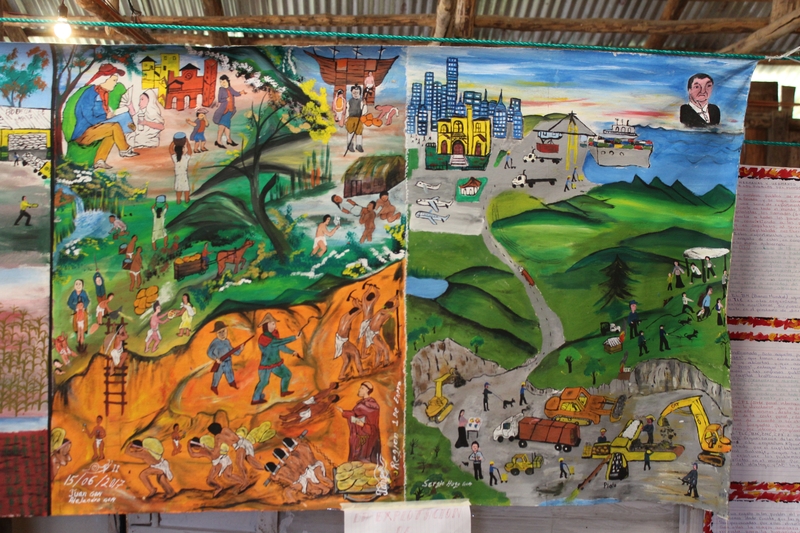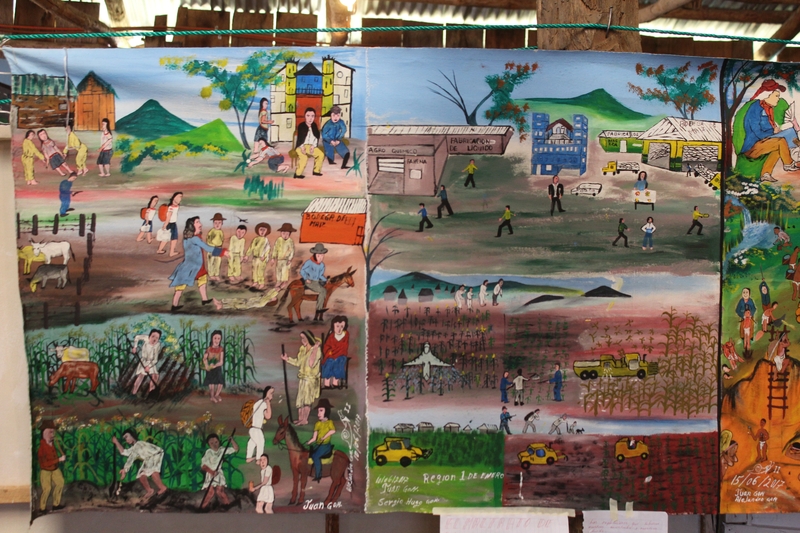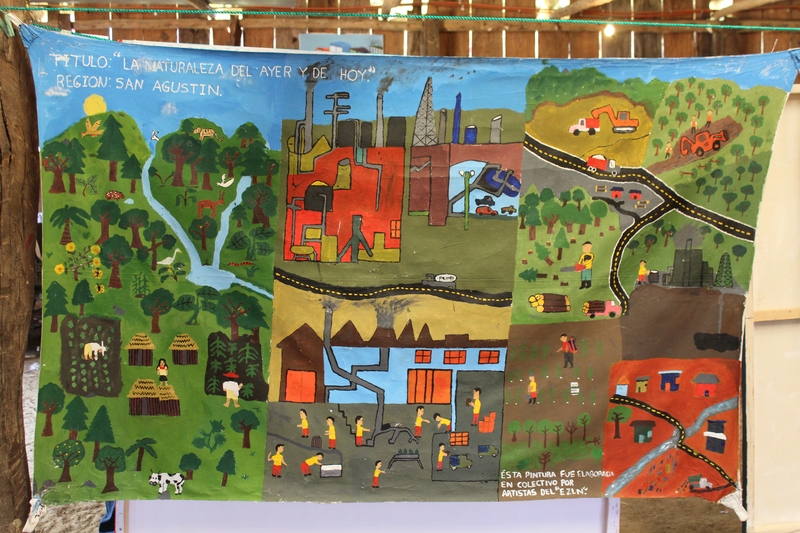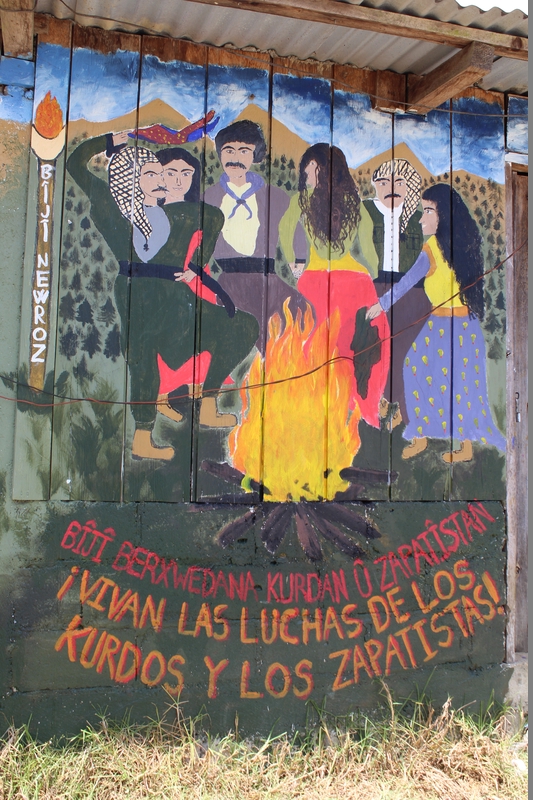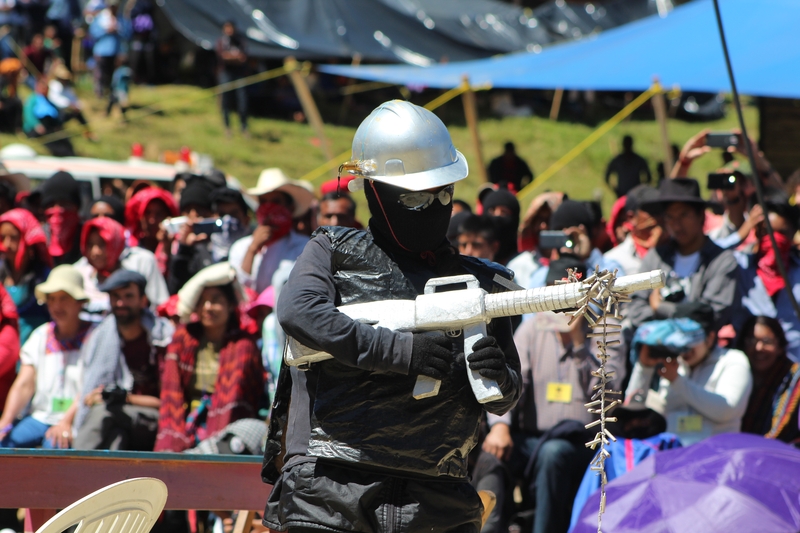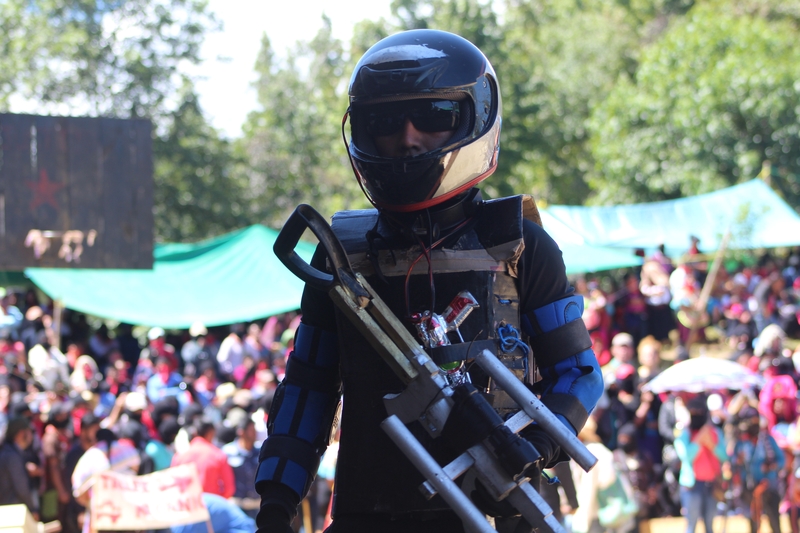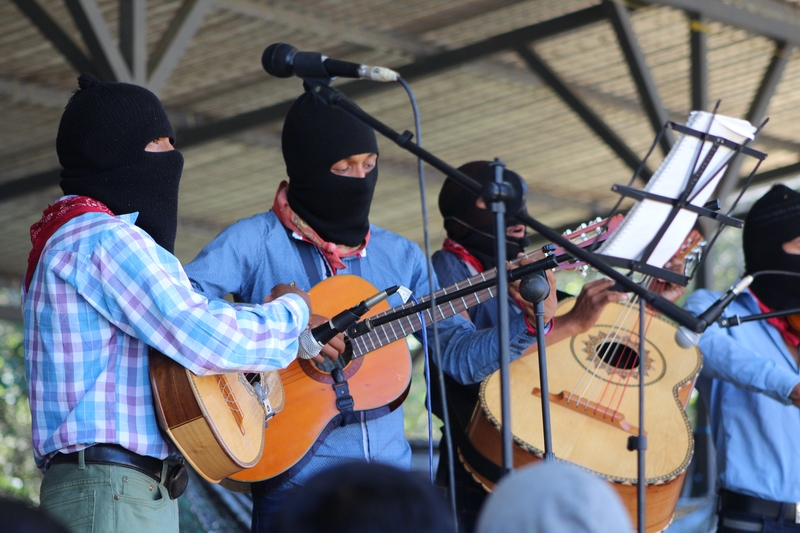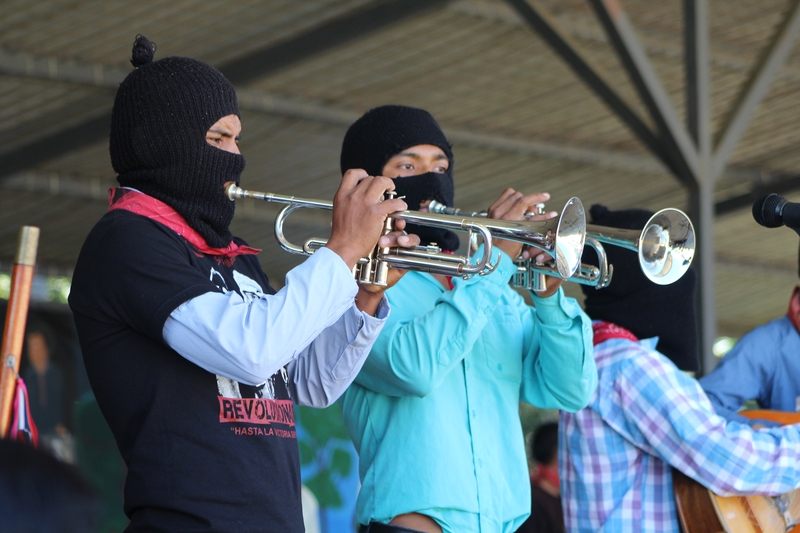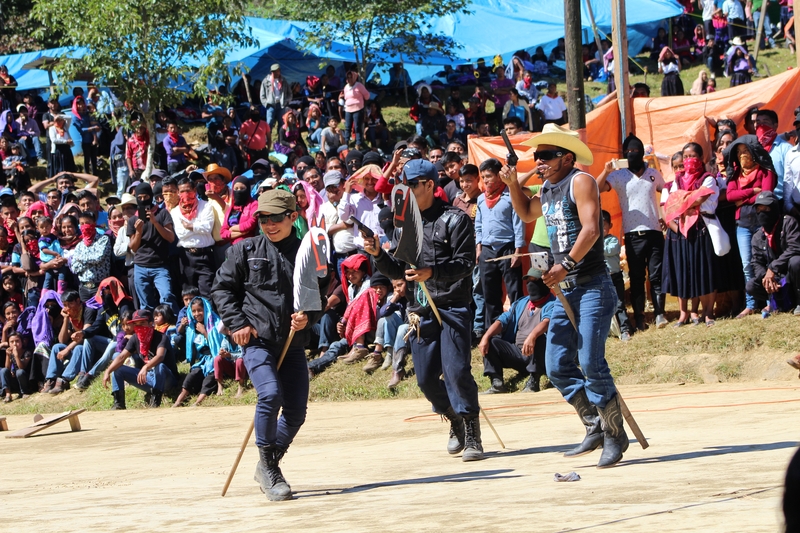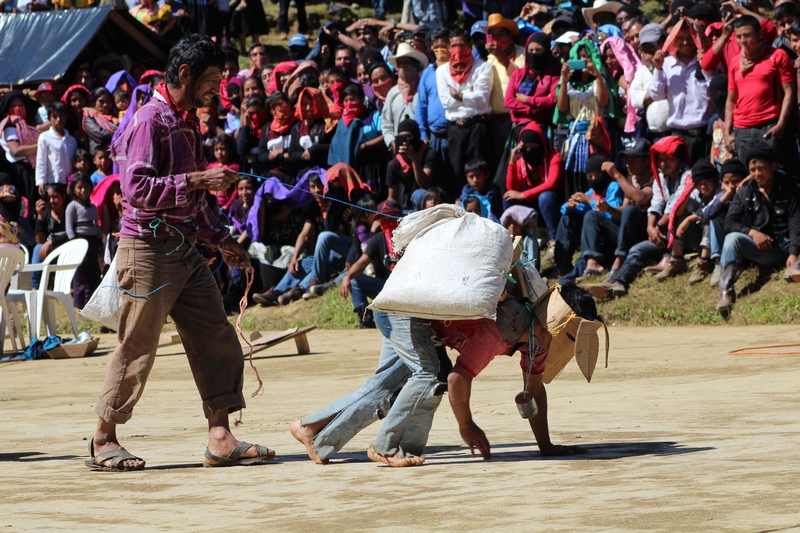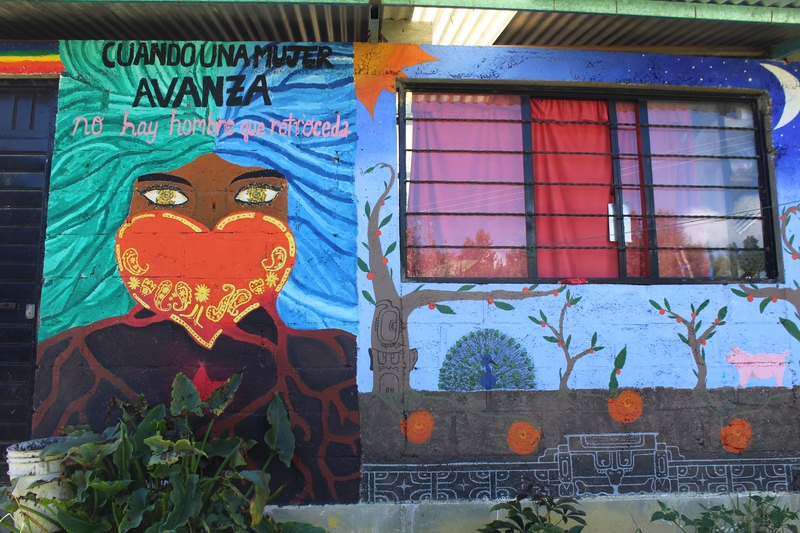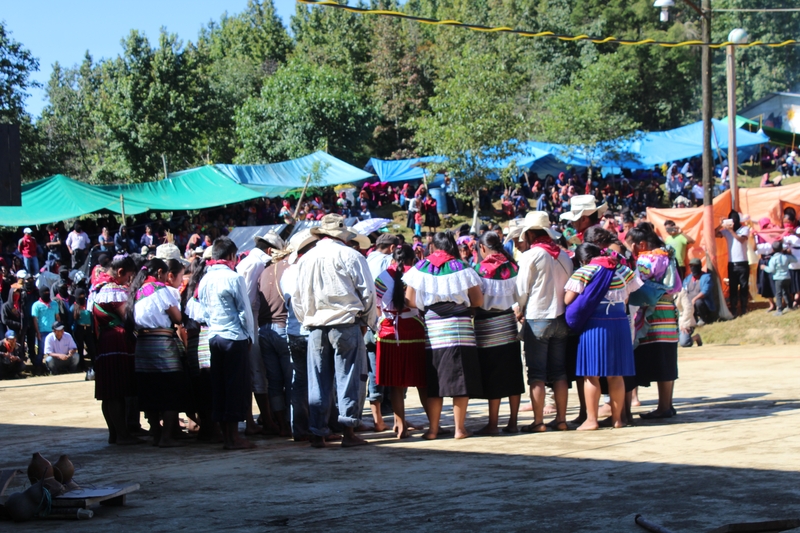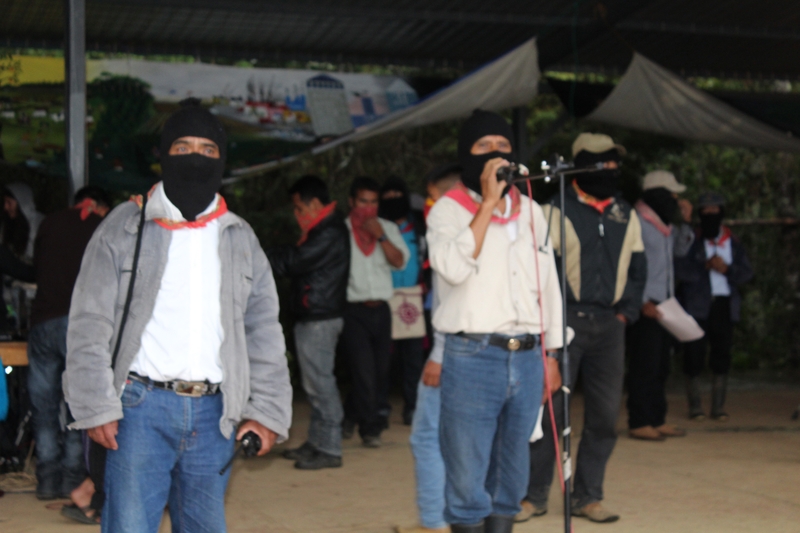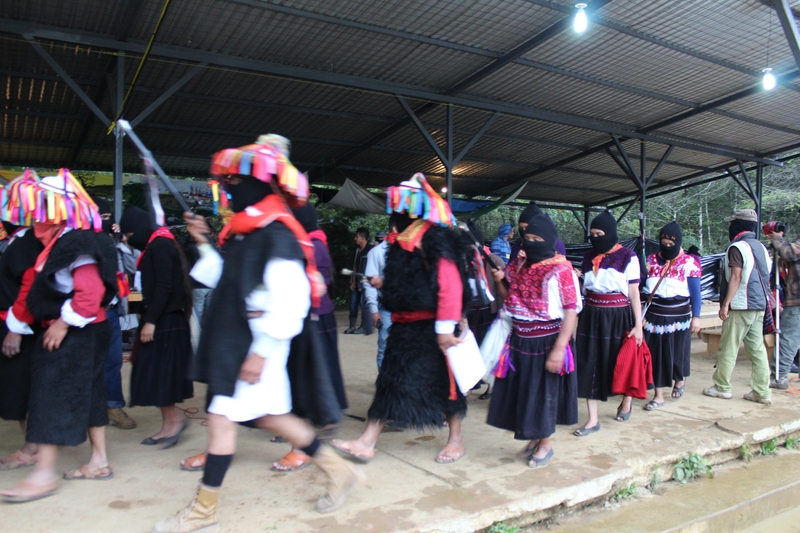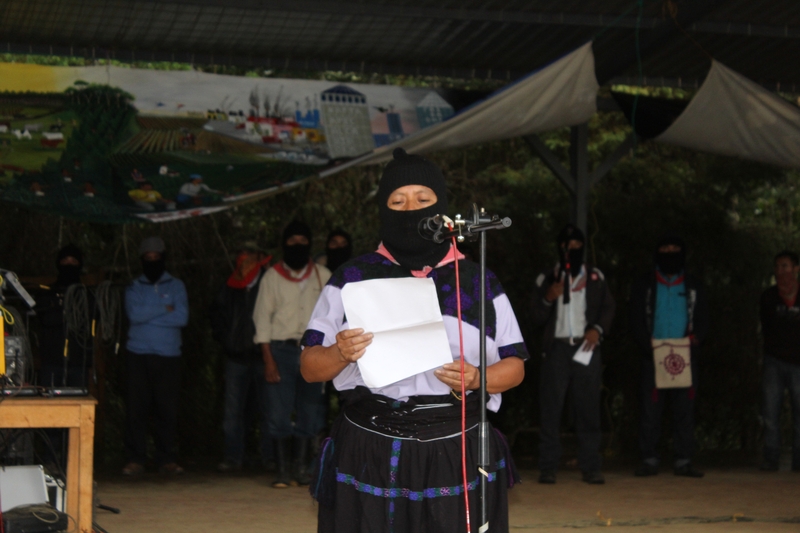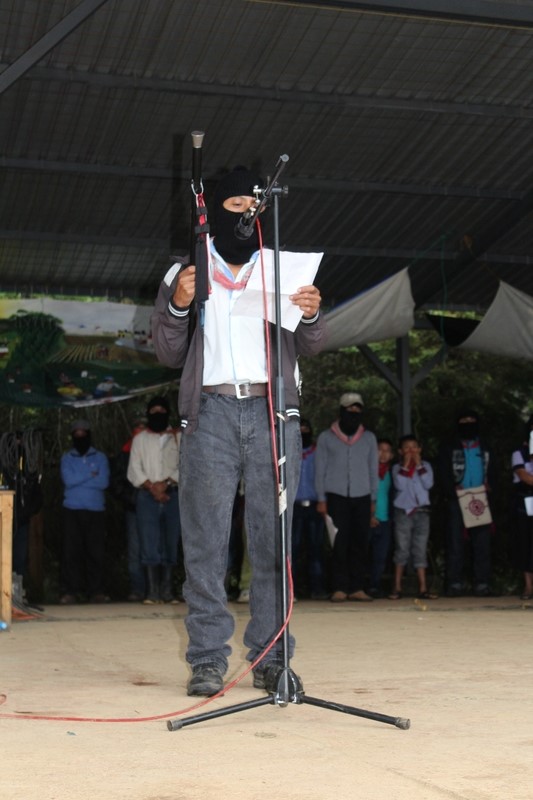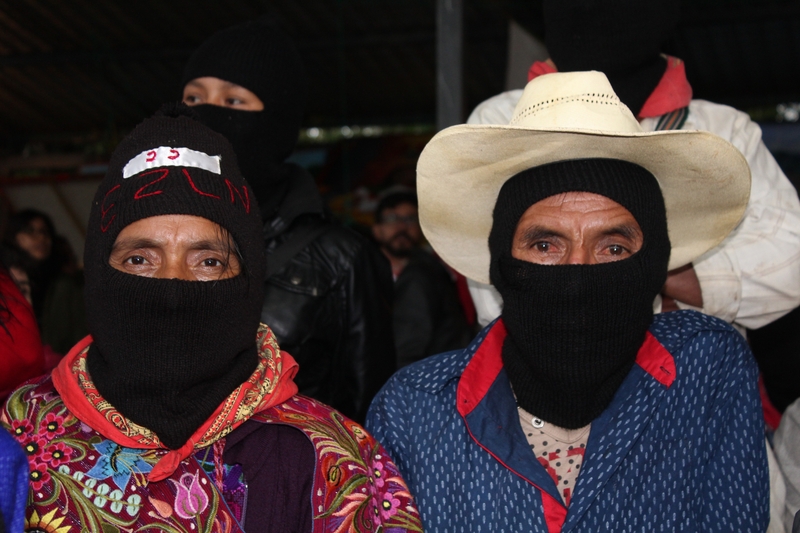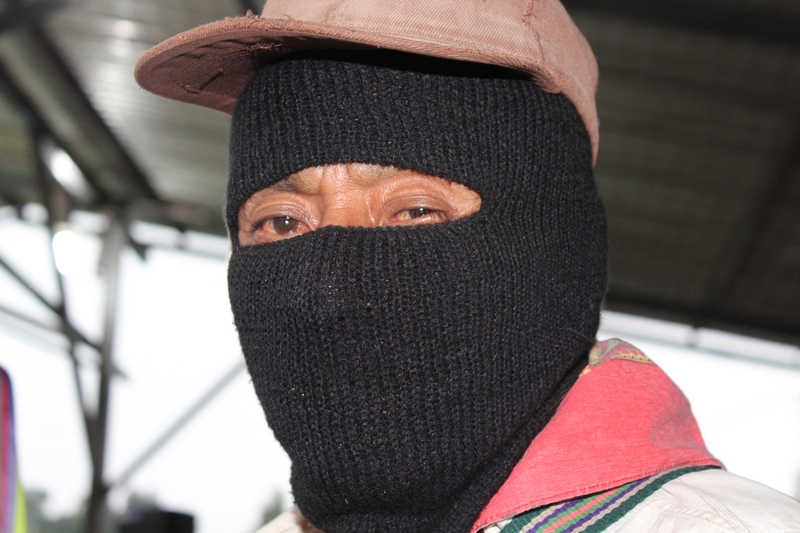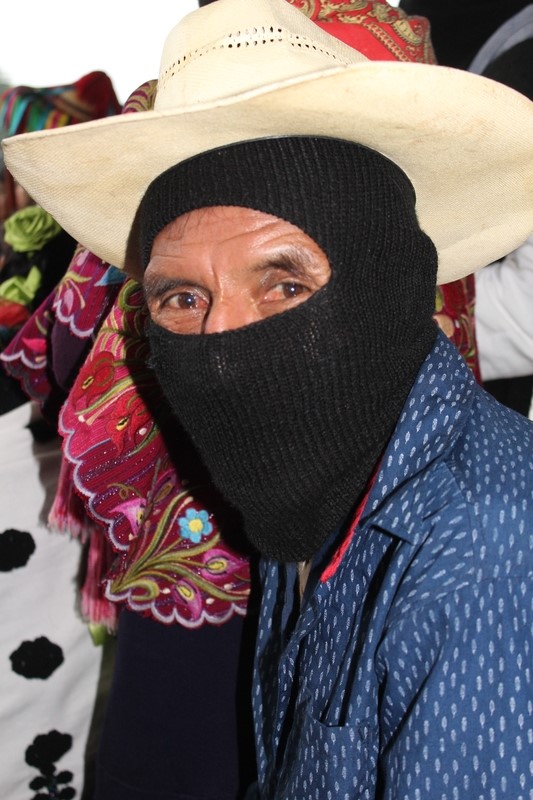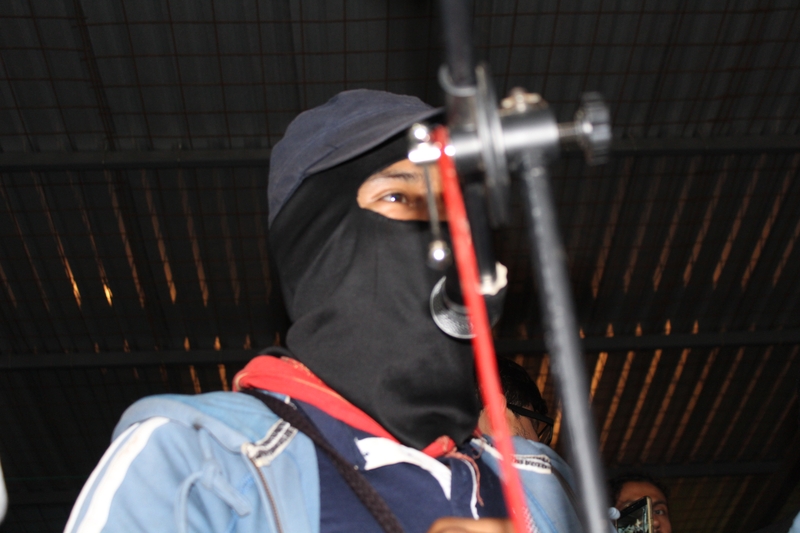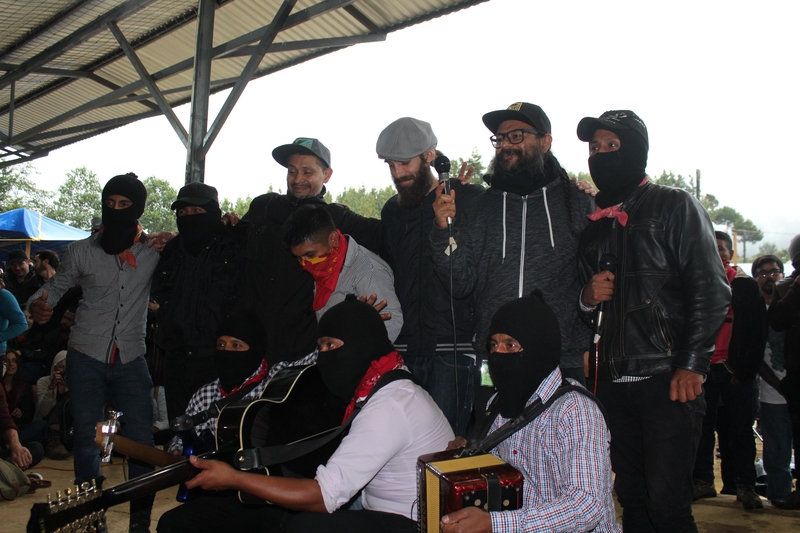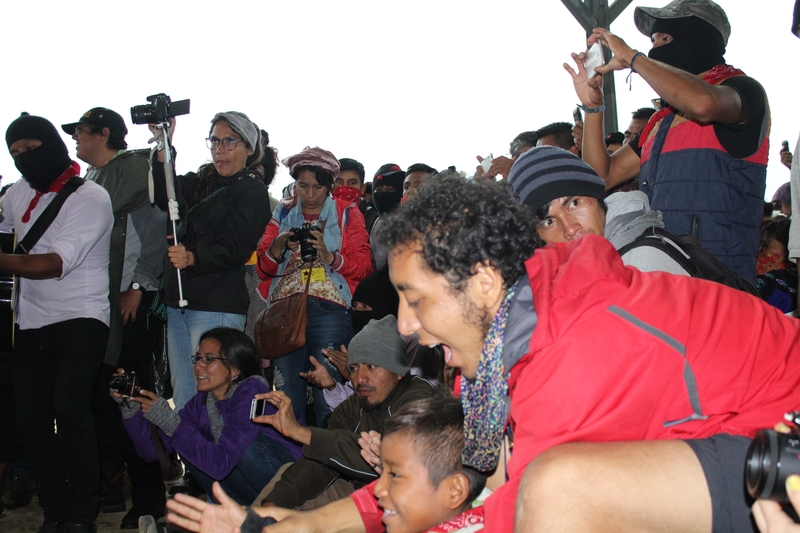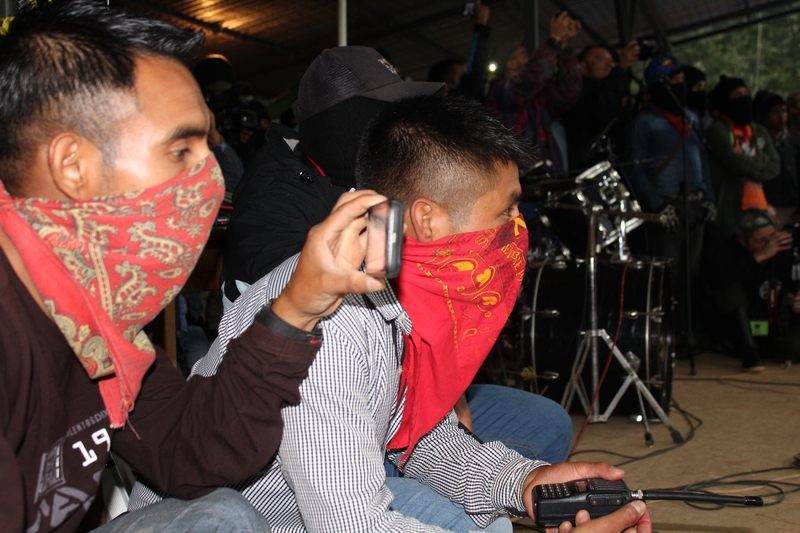
Chiapas
(Español) Palabras de la Comandanta Amada, de María de Jesús Patricio Matínez y de las compañeras Jacqueline, Valentina y Alejandra en Palenque
- Palabras de la Comandanta Amada a nombre del CCRI-CG del EZLN del Caracol V “Que habla para todos”, Zona Norte
- Palabras de Valentina a nombre del CCRI-CG del EZLN del Caracol V “Que habla para todos”, Zona Norte
- Palabras de María de Jesús Patricio Martínez
- Palabras de Alejandra a nombre de la Junta de Buen Gobierno “Nueva semilla que va a producir”, del Caracol V, Zona Norte
- Palabras de bienvenida de Jaqueline a nombre del Comité Clandestino Revolucionario Indígena del Caracol V, Zona Norte
Palabras de la Comandanta Amada a nombre del CCRI-CG del EZLN del Caracol V “Que habla para todos”, Zona Norte, en el acto político cultural realizado en Palenque el 18 de octubre de 2017
Escucha aquí: [podcast]https://radiozapatista.org/Audios/CIG2017_palenque_12.mp3[/podcast]
Compañera@s bases de apoyo del Ejército Zapatista de Liberación Nacional.
Compañer@s de la Sexta nacional e internacional.
Compañer@s del Congreso Nacional Indígena.
A la compañera vocera María de Jesús Patricio Martínez.
Al Concejo Indígena de Gobierno.
A los compañer@s concejales de los diferentes estados de la república.
A los medios libres, alternativos, autónomos o como se llamen.
A la prensa nacional e internacional.
A la prensa de paga.
A los diferentes sectores de México y el mundo.
Al pueblo de Palenque, territorio de pueblos originarios mayas.
Lo que va a pasar en nuestro país y el mundo
Con las reformas estructurales que el mal gobierno reformó es con la finalidad de privatizar todo, porque toda nuestra riqueza natural lo vendió con empresas extranjeras con pretexto de crear empleos y tener buen desarrollo en nuestro país. Lo que va pasar en este país si no nos organizamos nos van acabar con el aire, la tierra, el agua, los minerales, los bosques, los animales y los seres humanos, nos van a destruir, nos van dejar en algo irreparable, nos va a arrasar con la tormenta. No va a haber trabajo , no va a haber alimentación, no va a haber empleo, nos van a dejar la naturaleza destruido, la tierra quedará estéril, no habrá vida, no habrá futuro, nos van a desaparecer. Por eso tenemos que luchar para defender la madre de todos que es la madre tierra, luchemos por las miles y millones de vidas que existen y están por nacer en este mundo, no nos encerremos en resignaciones, ni en conformismos que el sistema nos oferta para mantener el poder político, ideológico, económico, social, psicológico y cultural.
El mal sistema su base principal es el dinero para seguir controlando al pueblo, porque ya no encuentran otra forma de mantenerse en el poder, para nosotros la gente de abajo el dinero no es la fuente de vida, luchamos no sólo por nuestro país, nuestra lucha es por la humanidad mundial, el arma del poder es dividirnos y pelearnos entre nosotros los pobres, con los diferentes partidos políticos que abusan nuestros pueblos por falta de información, existen medios pero están controlados por el mal sistema no informan la verdad, cuando algunos medios informan la verdad son secuestrados, torturados y asesinado, se exige justicia nadie los protege, porque todas las autoridades se vende y sale ganando el que tiene dinero. Entre ellos está el narco, el narco órgano y narcogobiernos, ellos nadie les hace nada, porque son los que financian los gobiernos, los jueces y los partidos políticos en tiempos electorales, hacen creer al pueblo que van hacer el cambio por medio de la democracia, pero en realidad los partidos políticos no son los que van a dar el cambio, porque son ellos mismos que han saqueado el país, ellos han entregado el patrimonio de la nación, son una cúpula de personas de los partidos políticos que aprueban leyes detrás de los pueblos.
Les preguntamos al público en general ¿por qué un pequeño grupo de personas holgazanes, buitres, bestias, zánganos, nos vienen a mandar si somos miles y millones de mexicanos trabajadores del campo y la ciudad?
Para ellos les conviene elegir personas asesinos, por ejemplo Enrique Peña Nieto, fue premiado presidente porque él fue quien mandó hacer violaciones, a golpear, a torturar y asesinar mujeres y hombres al pueblo de Atenco por sus policías, cuando era gobernador del Estado de México. Desde entonces no se ha hecho justicia porque son ellos que controlan la justicia por medio del dinero, por eso no existe la libertad, la democracia y la justicia.
Para ellos la justicia es mercancía, es negocio, pasan los tiempos y se hacen del olvidado; tenemos el ejemplo la masacre de Acteal; la muerte de niños y niñas en la guardería de ABC , en Hermosillo, Sonora; las violaciones y asesinatos de las mujeres obreras de Ciudad Juárez; los mineros atrapados en los escombros en Coahuila y los 43 desaparecidos normalistas de Ayotzinapa, entre otros. En todos estos acontecimientos no ha existido justicia.
(Español) Frayba solicita medidas cautelares ante la CIDH para indígena tsotsil en Privación Arbitraria de la Libertad

El Centro de Derechos Humanos Fray Bartolomé de Las Casas, A.C (Frayba) solicitó a la Comisión Interamericana de Derechos Humanos (CIDH) medidas cautelares que urjan al Estado mexicano adoptar acciones inmediatas para garantizar la vida, la integridad física y psicológica y seguridad personal, a favor de Francisco de Jesús Espinoza Hidalgo, (Francisco Espinoza) víctima de Tortura, quien se encuentra en Privación Arbitraria de la Libertad en el Centro Estatal para la Reinserción Social de Sentenciados Núm 14, “El Amate”, (CERSS Núm. 14 “El Amate”), en Cintalapa de Figueroa, Chiapas México.
El Frayba informó a la CIDH que Francisco Espinoza, indígena tsotsil, campesino, de 68 años de edad, originario de Barrio El Convento, municipio de Venustiano Carranza, Chiapas se encuentra en deteriorado y grave estado de salud, a consecuencia de la Tortura sufrida durante su injusta detención el 29 de mayo de 2015 y debido a sus actuales condiciones carcelarias sin atención médica adecuada.
Según informe de peritos independientes especializados que aplicaron el Protocolo de Estambul, Francisco Espinoza presenta estrés postraumático, depresión, ansiedad, dolores extremos en torax y cuello, falta de apetito, insomnio crónico, lagunas mentales; así como alto riesgo a su salud por padecimiento de hipertensión arterial y diabetes mellitus. Recomiendan que sea excarcelado para garantizar su vida ante el acelerado daño físico y mental.
De acuerdo a testimonio de su familia, de fecha 9 de octubre de 2017, Francisco Espinoza teme por su vida porque su salud empeora cada día, soportando fuertes dolores: “puede morir en la cárcel en cualquier momento.” “Los familiares somos personas de bajos recursos económicos, pero nosotros hemos comprado en algunas veces los medicamentos porque el CERSS no quieren dar atención médica”.
Este Centro de Derechos Humanos considera que el castigo psicológico que provoca su encarcelamiento en condiciones inhumanas, forma parte de una tortura como mecanismo de castigo continuado y permanente; así mismo reiteramos al Estado mexicano que es su responsabilizar proteger y garantizar el derecho a la vida, y la integridad física y psicológica y seguridad de las personas que se encuentran bajo su custodia.
Por lo anterior solicitamos: Se realice una investigación de los hechos de Tortura cometidos en contra de Francisco Espinoza, para sancionar a los responsables y la Tortura no quede en la impunidad; Se ponga en libertad a Francisco Espinoza, para brindarle las atenciones médicas necesarias, a fin de garantizar el derecho a la vida, la integridad física y psicológica y seguridad personal.
Especialmente exhortamos a las autoridades del CERSS Núm. 14 “El Amate”, dependiente de la Subsecretaría de Seguridad y Protección Ciudadana atender la urgente situación de riesgo a la salud de Francisco Espinoza.
Contexto:
Francisco de Jesús Espinoza Hidalgo, fue encarcelado a consecuencia de sus acciones en defensa de sus derechos en los Bienes Comunales en la Casa del Pueblo, acusado de robo con violencia agravada y daños, por Domingo Sebastián de la Torre Gómez, ex comisariado ejidal, por hechos ocurridos el 21 de abril de 2015, según el auto de formal prisión del Juez Primero del Ramo Penal de Delitos Graves del Distrito Judicial de Tuxtla Gutierrez, con sede en Cintalapa de Figueroa, Chiapas.
El 29 de mayo de 2015, a las 7:30 horas aproximadamente, a una cuadra de su casa en la calle 10 de mayo, Barrio La Alberca, municipio de Venustiano Carranza, Chiapas, en camino a trabajar su milpa, Francisco de Jesús Espinoza Hidalgo fue Privado Arbitrariamente de la Libertad por personas vestidas de civil quienes lo torturaron durante la detención, el trayecto y hasta su reclusión en el CERSS Núm. 14 “El Amate”, en Cintalapa de Figueroa, Chiapas México. Además existen violaciones al debido proceso y a sus garantías judiciales a falta de una defensa adecuada antes de dictarse el auto de formal prisión.
